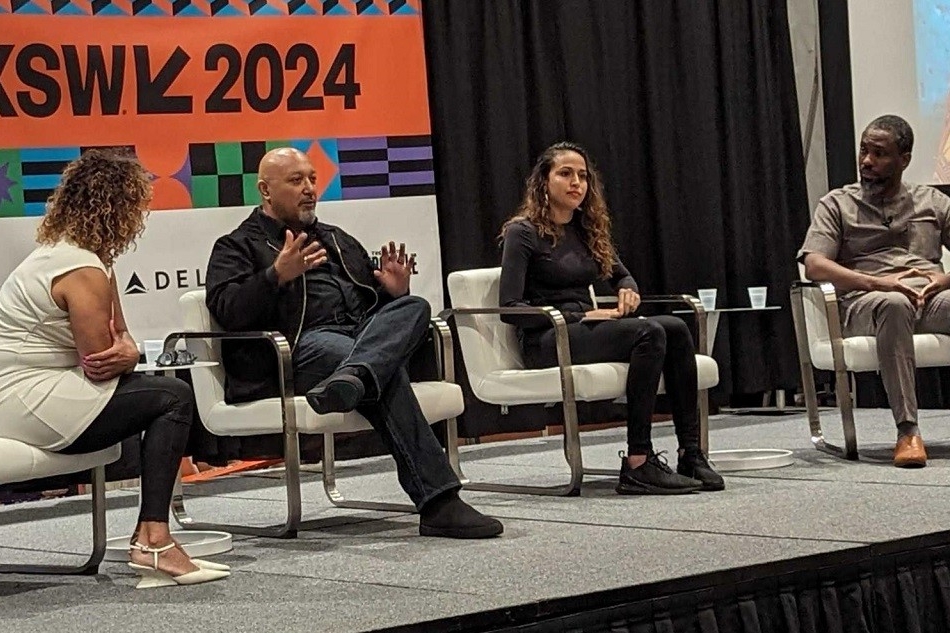Redefining AI: Concordia's Jason Edward Lewis takes the stage at South by Southwest
 From left to right: Karen Palmer, Jason Edward Lewis, Idalin Bobe and Kambale Musavuli.
From left to right: Karen Palmer, Jason Edward Lewis, Idalin Bobe and Kambale Musavuli.
Jason Edward Lewis, professor and co-director of the Indigenous Futures Research Centre and co-principal investigator of the Abundant Intelligences research program, was a featured speaker at the South by Southwest conference in Austin, Texas.
On March 14, Lewis participated in the panel AI Next Frontier: Breaking the Chains of Colonial Algorithms, a discussion exploring the intersection of artificial intelligence, decolonization and indigenous knowledge systems.
The panel featured a globally renowned group of experts including Ruha Benjamin, professor of African American studies at Princeton University; Kambale Musavuli, political analyst and spokesperson for the Center for Research on the Congo-Kinshasa; and Karen Palmer, ‘Storyteller from the Future’ and an award-winning extended reality (XR) creator and futurist who explores the societal implications of A.I and technology.
The conversation delved into critical issues surrounding AI, such as decolonization, bias eradication, Indigenous AI, techno-activism, and futurism. It represents an essential step toward a future where technology not only serves justice, equality, and liberation, but is also rooted in the rich soil of Indigenous Knowledges and ethics.
“Abundant Intelligences is bringing abundance into the global conversation about AI and what it means for the future” says Lewis. “Our international partnership re-imagines AI protocols and practices with Indigenous Knowledges and Systems.”
Abundant Intelligences
Funded by a New Frontiers of Research Fund Transformation and Social Sciences and Humanities Research Council Partnership grant worth nearly $23 million, Abundant Intelligences seeks to reimagine the development and application of AI through the lens of Indigenous epistemologies and aims for a future where AI systems are built on Indigenous Knowledges and Systems. This approach advocates for technology that integrates with existing lifeways, supports the flourishing of future generations, and optimizes for abundance rather than scarcity.
The Indigenous-led project involves 48 co-investigators and collaborators, the majority Indigenous researchers and community members. Other research partners include Mila (Quebec Artificial Intelligence Institute), IVADO, Indigenous Design & Innovation Aotearoa (IDIA) and Indigenous In AI. The program also includes eight universities and 12 Indigenous community-based organizations from Canada, the United States and New Zealand.
The research program is headquartered in Concordia's Indigenous Futures Research Centre.
Learn more about the Abundant Intelligences research program.